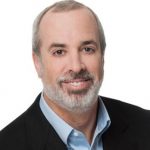 Edelman Financial Engines is still in the earliest stage of developing a platform that can be integrated with human advisers to access the more than 1 million plan participants currently serviced on the Financial Engines side. (Photo: Shutterstock)
Edelman Financial Engines is still in the earliest stage of developing a platform that can be integrated with human advisers to access the more than 1 million plan participants currently serviced on the Financial Engines side. (Photo: Shutterstock)
When it was announced last spring that Hellman & Friedman, the private equity firm that already owned a majority stake in Edelman Financial Services, was throwing down $3 billion in cash to take 401(k) provider Financial Engines private, one prominent industry voice predicted the deal would present an existential threat to trillions of dollars in potential IRA rollovers.
“It may mean the beginning of the end of the giant 401(k) rollover bonanza that powers so much growth in the advice business today,” wrote Michael Kitces, a partner with Pinnacle Advisory Group and publisher of the Nerd's Eye View blog.
Pairing Financial Engines, the largest 401(k) automated fiduciary investment platform provider that added more than 900 new plan sponsors in 2018, with Edelman Financial, one of the largest retail RIAs with 320 fiduciary advisers across the country, is a first-of-its kind arrangement.
The merger stands to crack a code industry has been wrestling with: How do you deliver comprehensive human financial planning directly to retirement savers in 401(k) plans?
“The great thing about providing the advice in-plan is that participants don't need a rollover to get the advice relationship in the first place—they'll already have it,” explained Kitces in an email.
Game-changing event
As of the end of 2018, IRAs held $8.8 trillion in assets, or about one-third of the $27.1 trillion retirement market. IRA assets have increased an average of 10 percent a year over the past quarter century, according to the Investment Company Institute.
That growth has been fueled by rollovers from workplace retirement plans, ICI data shows.
In mid 2018, 42.6 million, or 33 percent of the country's total households, reported owning an IRA. Among those households with rollovers in traditional IRAs, 57 percent had only rollover money in their accounts, meaning they have never made other contributions to their IRAs.
 Ric Edelman
Ric EdelmanCan the merger that formed Edelman Financial Engines—substantial as it is—really disrupt all of that rollover momentum?
“In the long run, I believe Michael [Kitces] will prove to be correct,” Ric Edelman told BenefitsPRO in an interview.
“This has never been done before in the RIA industry,” he said of the merger. “It's a game-changing event, and we have every intention of delivering on the potential the merger creates. That would be disruptive to industry, but in favor of clients, and in the end that's all that really matters.”
In serving his retail clients over 30 years, Edelman has found they need and want help across all of their assets, regardless of whether they are held in qualified retirement plans or not.
ERISA has specific restrictions on when advisers can offer advice on assets not held by the adviser.
“That's one of the reasons why advisers like to encourage IRA rollovers,” explained Edelman. “And they recognize they can earn compensation for doing so — compensation that could exceed what plan participants would otherwise pay if assets were left in 401(k) plans.”
Putting buggy-whip manufacturers on notice
That inherent conflict is eliminated under Edelman Financial Engines, said Edelman. Retirement plan savers' ERISA-qualified assets are held under the Financial Engines arm. Fiduciary advisers on the Edelman side will be allowed to advise what to do with those assets upon retirement.
“If we are able to pull this off as we hope, there are a lot of buggy-whip manufacturers that will be put on notice,” said Edelman, referencing the disruption Ford's Model T had on the horse and buggy industry a century ago.
“For advisers, brokerages, and fund companies that depend on IRA rollovers for their asset flows, they are correct to be concerned about their business models,” he added.
If disruption comes, it shouldn't be expected over night.
Edelman Financial Engines is still in the earliest stage of developing a platform that can be integrated with human advisers to access the more than 1 million plan participants currently serviced on the Financial Engines side.
“The jury is out on what this will actually look like, and how and when we deploy it,” said Edelman. “Because it is such a potential game-changer we want to take the time to get it right. We're confident we are going to develop a platform that constitutes best practices, and that it will be widely accepted by our workplace clients and become the industry standard for the entire RIA community.”
Recently, Edelman Financial Engines rolled out a foundational building block.
The Fiduciary Distribution Review will provide free, one-on-one rollover reviews with an Edelman fiduciary to any company plan supported by Financial Engines that wants to offer the service.
The genesis of the program began with what Edelman said was anecdotal evidence showing many 401(k) participants are unaware of their options when retiring or separating from an employer.
A recent commissioned survey of more than 1,000 plan participants by the company shows just how many are in the dark on rollovers. About four in 10 said they had no idea that leaving money in-plan was an option—they assumed that the rollover was required, the study found.
“The survey was done to quantify our suspicions,” he said. “That so many participants don't know they have the option to leave money in plans demonstrates a real lack of knowledge. That can subject them to higher fees, taxes, and risks that are otherwise avoidable. We want to assure employees have all the information they need available to them.”
The “significant marketing push” by brokerages and fund companies has tempted some providers to offer rollovers without advising clients that they are not mandatory, thinks Edelman.
While he cautioned that it is still early, Edelman said that the fee schedule for clients that ultimately do roll over assets from a Financial Engines plan to an Edelman adviser may not change.
“There may not necessarily be a difference in cost,” he said. “It's conceivable that what the client was paying in the workplace plan will be maintained post employment.”
If that's the ultimate upshot, regulators will be bound to take notice, said Edelman.
“The structure we're developing is consistent with what regulators are developing,” he said. “I'm convinced they'll help facilitate the direction we are pioneering, because it is so clearly in clients' best interests. That will put further pressure on the rest of the marketplace. If we can do it, they should be able too.”
READ MORE:
Big 401(k)s shedding pro rata recordkeeping structure
More recordkeeper M&As coming despite “spotty history” of capturing efficiencies
Broker-dealers expected to be gun-shy on rollover recs under SEC's Reg BI
© 2025 ALM Global, LLC, All Rights Reserved. Request academic re-use from www.copyright.com. All other uses, submit a request to [email protected]. For more information visit Asset & Logo Licensing.








